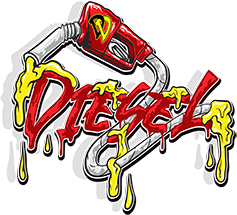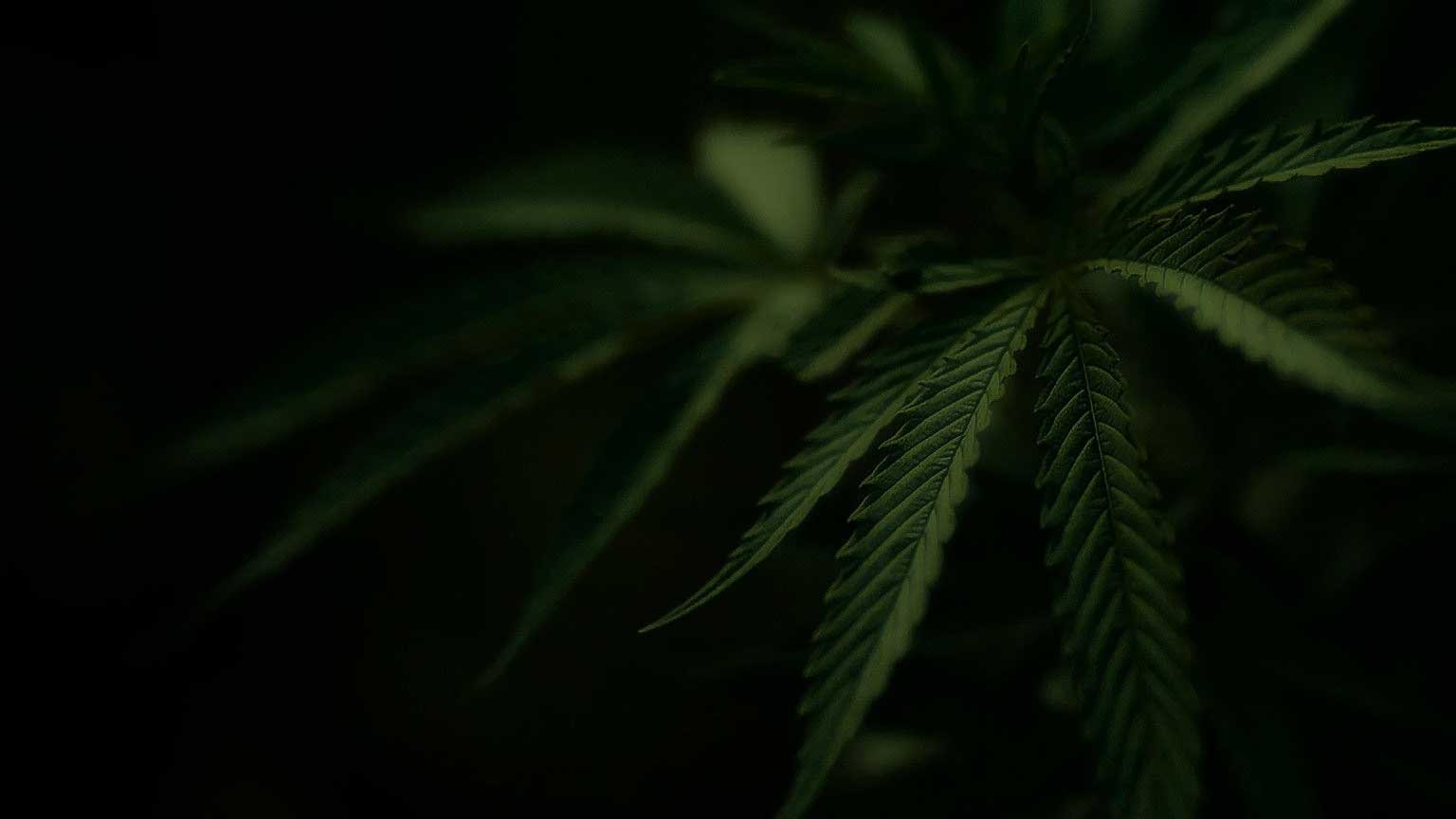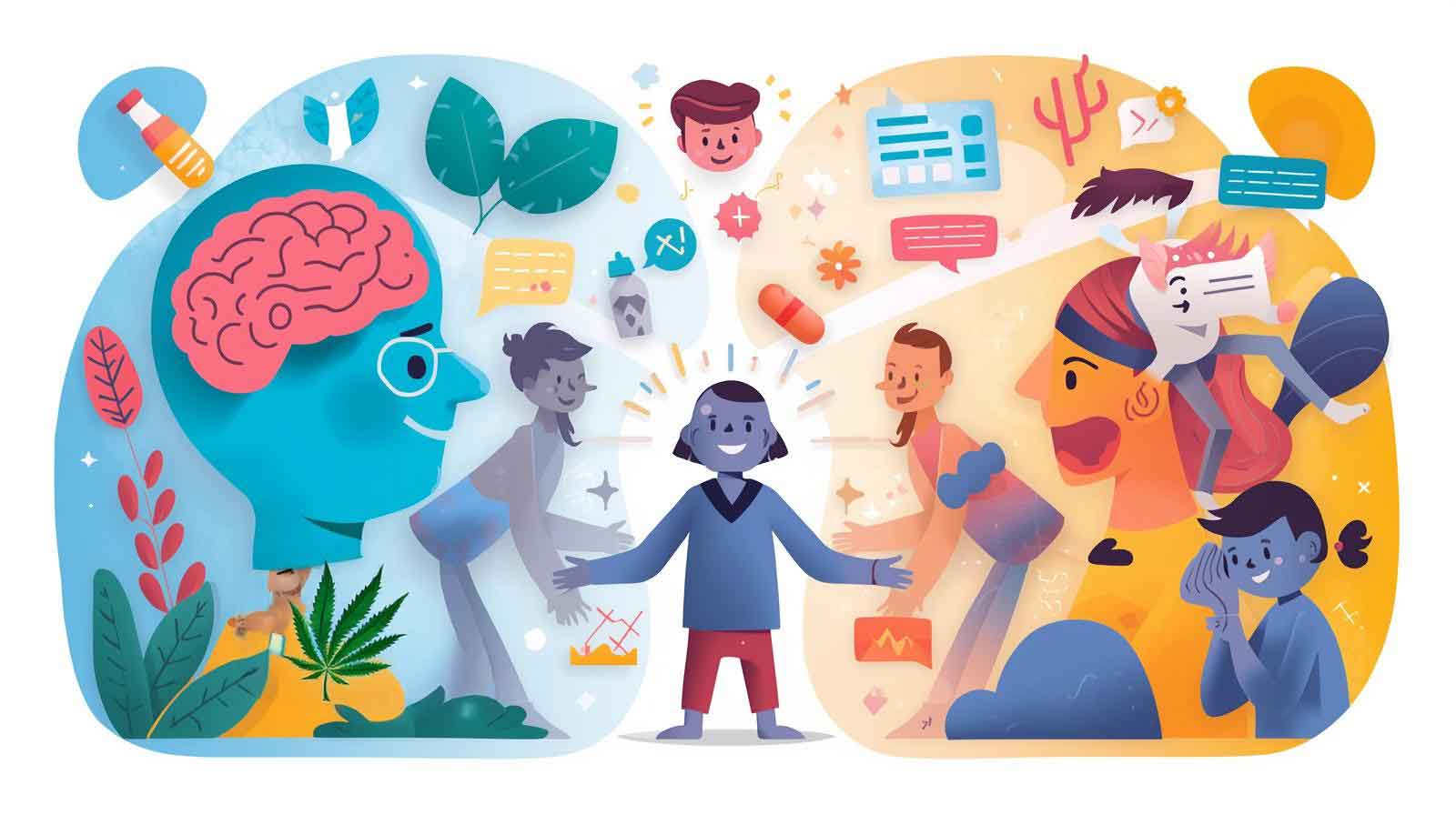Anxiety and depression? Medical cannabis may offer some relief, and that's causing quite a stir. Discussions are heating up. THC and CBD: Scientists are currently examining their influence on emotional states. People looking for help turn to dispensaries for high-quality cannabis strains that can improve their emotional health.
Dosage plays a key role as well when considering the therapeutic effects versus unwanted side effects of cannabis treatment. Lawful use remains complex depending on where you live; States vary widely in legal statuses for such treatments.
Cannabis' brain effects? Gruber's work shows they're not static; variables like dosage, user genetics, and environment all play a role. Understanding this dynamic situation is easier now, all thanks to his contributions.
Exploring Medical Cannabis for Anxiety Relief
Medical cannabis is gaining traction as a potential aid for anxiety relief. Studies led by Dr. Staci Gruber through the Marijuana Investigations for Neuroscientific Discovery (MIND) Program reveal that, unlike recreational users, medical cannabis patients often see stable or improved cognitive functioning.
The program has rigorously explored how cannabinoids like THC and CBD interact with mental health conditions such as anxiety. Clinical trials demonstrate promising results; participants reported reduced symptoms of anxiety after treatment with CBD-rich products. Significantly, these findings align with prior research that points to the anxiolytic properties of lower-dose THC and particularly CBD.
Evidence suggests it can alleviate anxious feelings without serious adverse effects or intoxication sensations in users. Given this emerging data on medical cannabis efficacy in treating anxiety disorders. An issue increasingly relevant post-pandemic.
One can't deny its growing role within therapeutic contexts. Individuals interested should consult healthcare professionals. They should consider visiting a medical cannabis dispensary where quality-controlled products are available, and staff can share insights into appropriate cannabinoid use.
Medical Cannabis Impact on Depression Symptoms
Recent studies have sparked interest in the therapeutic benefits of cannabis, particularly concerning mental health. With a significant portion of medical cannabis users seeking relief for anxiety and depression symptoms, you might wonder how effective it actually is.
- Prevalence and Self-Medication: A substantial number of adults experience mood disorders at some point. Over 264 million suffer from clinical depression globally, with many Americans self-medicating using medical cannabis. Approximately 34% report using it to alleviate depressive symptoms despite its contentious status among treatments for long-term mental health.
- Immediate Effects vs Long-Term Outcomes: Cannabis shows potential in offering temporary respite from distressing emotions associated with depression. An initial drop in stress levels is common post-cannabis use per user reports; however, researchers caution against expecting sustained improvements over time as continued usage may worsen depressive states rather than ameliorate them.
Evaluating THC and CBD Effects on Mood
When you're considering medical cannabis for mood regulation, both THC and CBD hold distinct roles. THC is known to create a euphoric state, potentially beneficial for some with depression. However, this same effect might be unfavorable in bipolar disorder or PTSD cases where it could contribute to symptom worsening, according to studies dating from 1990-2018.
On the other hand, CBD exhibits anxiety-reducing properties without intoxicating effects. Research indicates clear links between the use of marijuana and certain mood disorders like bipolar disorder and PTSD, suggesting potential harm. Evidence concerning depression and general anxiety isn't as strong yet due to fewer high-quality clinical trials specifically targeting these conditions.
Anecdotal reports claim benefits of cannabis on emotional well-being. We still need more rigorous prospective research before definitive conclusions can be drawn about its efficacy in treating such ailments. This gap also extends into cannabinoid-based treatments (like nabilone or nabiximols), which currently lack substantial treatment-focused data despite their growing interest among mental health professionals.
To truly understand how manipulating our endocannabinoid system affects mood disorders through cannabinoids requires future efforts concentrating on thoroughly controlled settings involving patients battling various forms of depressive or anxious states.
Dispensary Selection: Finding Quality Strains
In selecting the right dispensary for quality strains, consider both product excellence and knowledgeable staff. Your goal is to ensure safety and effectiveness in treating anxiety or depression with cannabis.
- Reputation: Choose a dispensary renowned for its high standards and patient satisfaction. This should be evident through positive online reviews, recommendations from healthcare professionals, and accreditation by reputable organizations within the industry.
- Product Testing: Verify that all products undergo rigorous testing for potency and contaminants; this step cannot be overlooked when your health is involved. Dispensaries adhering to strict testing protocols guarantee that you are purchasing safe cannabinoid profiles suitable for medical use—crucial when addressing mental health concerns.
- Expert Guidance: Ensure that the dispensary employs well-informed staff who are willing to discuss your specific needs closely aligned with guidance from qualified doctors regarding CBD or other supplements' interactions with prescription medicines, preventing adverse effects on your therapy regimen.
Tailored Dosage Recommendations for Emotional Well-Being
When you use medical cannabis to manage emotions, it's vital that you get the dosage right. High THC strains can increase anxiety if taken in excess. Luckily, recent studies spotlight d-limonene as a game changer for customized dosing.
When mixed with THC, this terpene significantly reduces feelings of anxiety or paranoia. In tests where adults inhaled both substances together compared to just THC alone, they felt noticeably less anxious without any negative impacts on mood or cognitive function. Specifically, tailoring your dose to include d-limonene could help you feel more relaxed and avoid unwanted side effects from larger amounts of THC.
A step toward safer consumption and therapeutic application.
Potential Side Effects of Cannabis Treatment
Cannabis, while often used for its potential benefits in managing anxiety and depression, carries risks. You should be aware of the possible side effects before considering cannabis as a treatment option.
- Cognitive Impairment: Regular use can affect your concentration and memory. Younger users face a higher risk of these cognitive impairments carrying into adulthood. Remember that adolescence is a critical time for brain development; introducing THC can disrupt this process significantly.
- Substance Use Disorders: Relying on cannabis may lead to substance misuse or complicate existing disorders like SUDs during opioid treatment—sometimes called "self-medicating." This behavior might not only fail but could result in additional addictions or even exacerbate depressive symptoms if mistaken as an antidepressant substitute.
If you struggle with anxiety or depression, medical cannabis might offer some relief. Research hints at its potential to calm nerves and improve moods. Yet everyone reacts differently, so it's wise to proceed with care.
Consult a healthcare provider to weigh the benefits against any risks carefully. Diesel Dispensary offers quality options for those considering cannabis as part of their wellness journey; always prioritize safety and professional advice on this path.




Share:
Recreational Cannabis - Can It Improve Creativity & Focus?
How Medical Cannabis Can Help with Chronic Pain Management